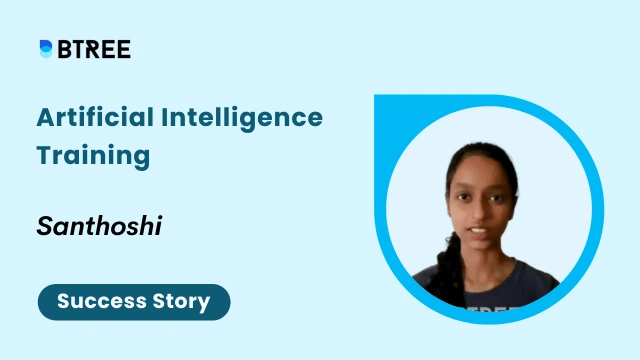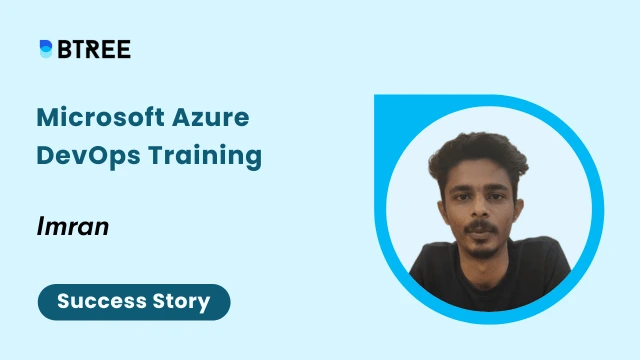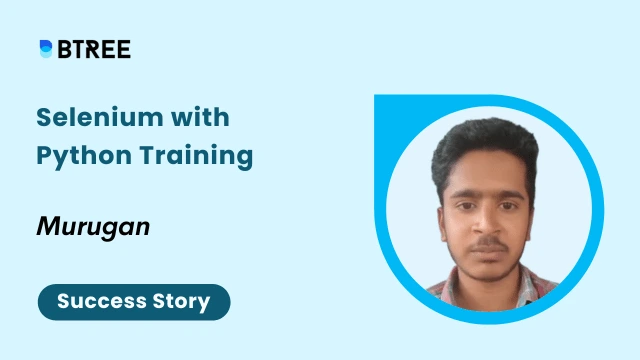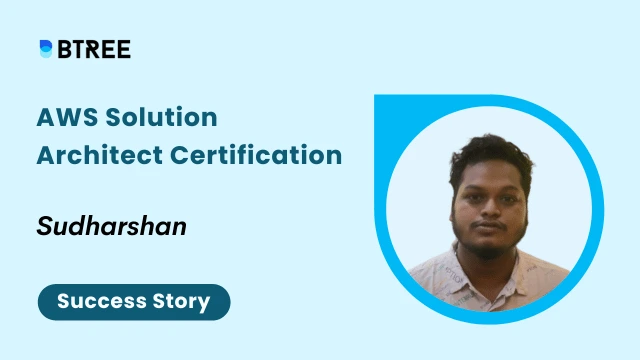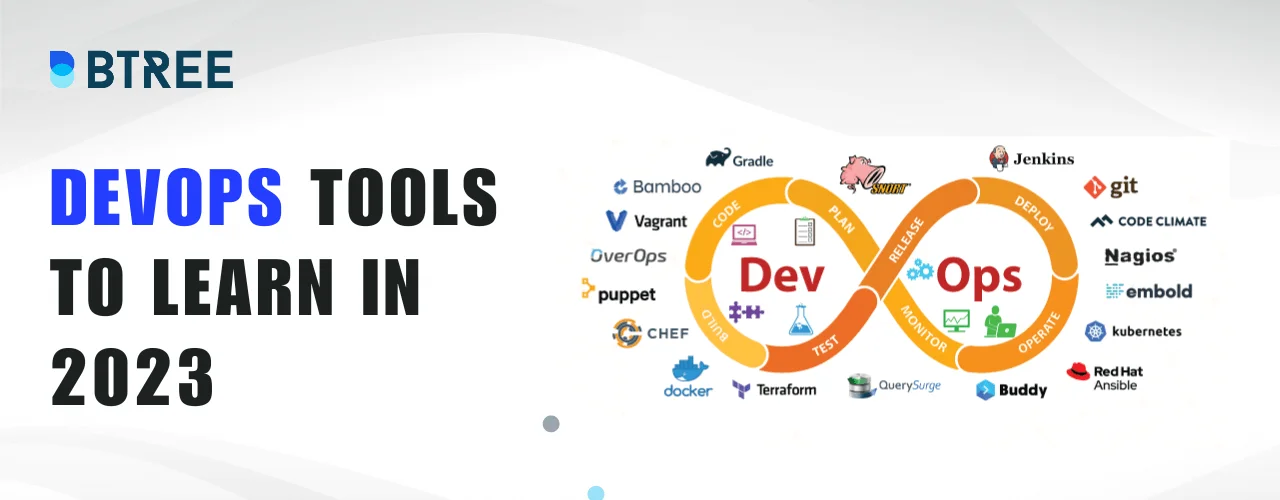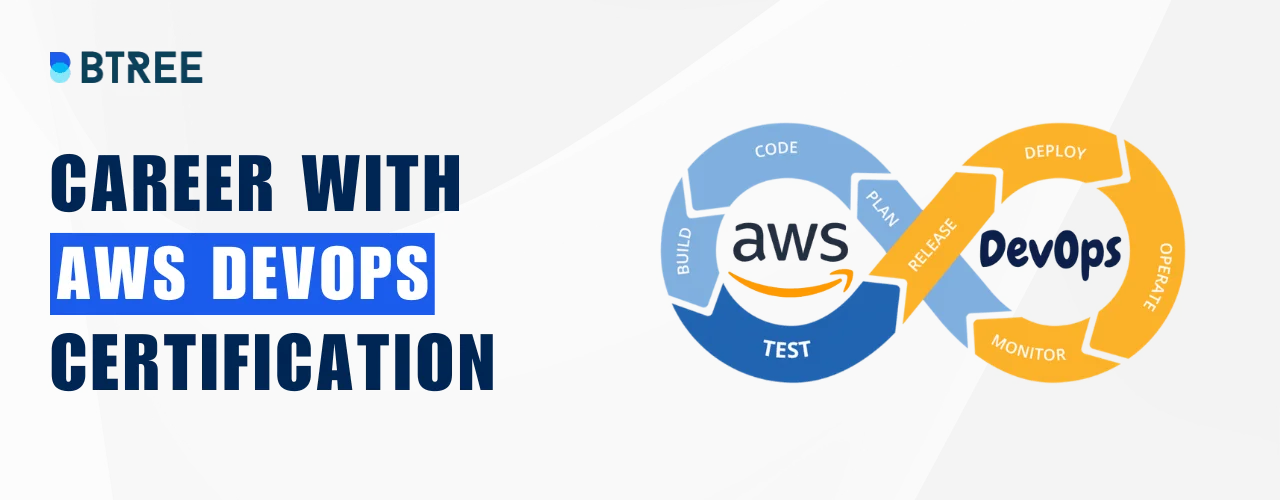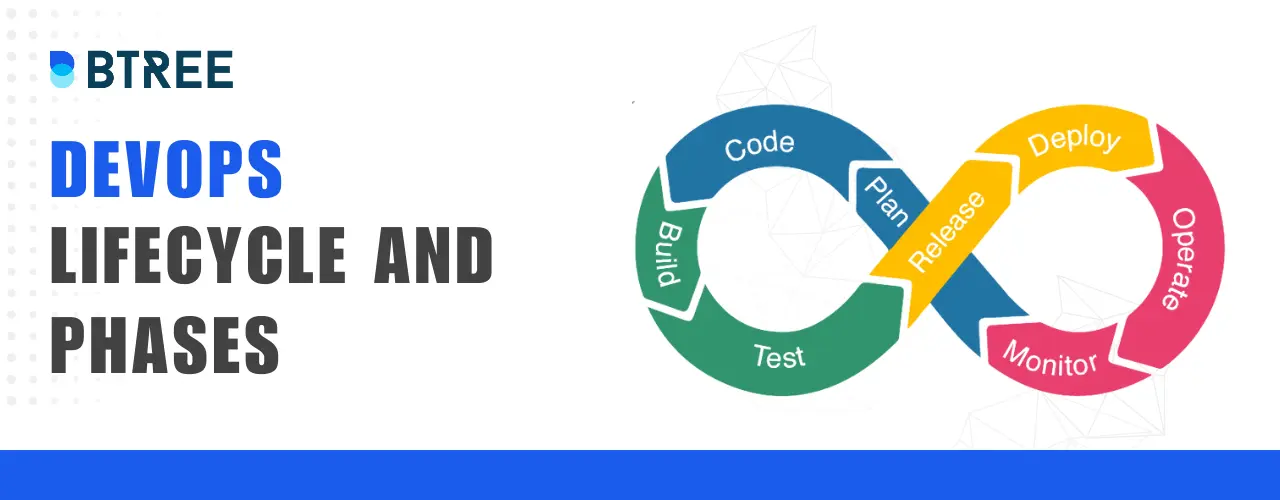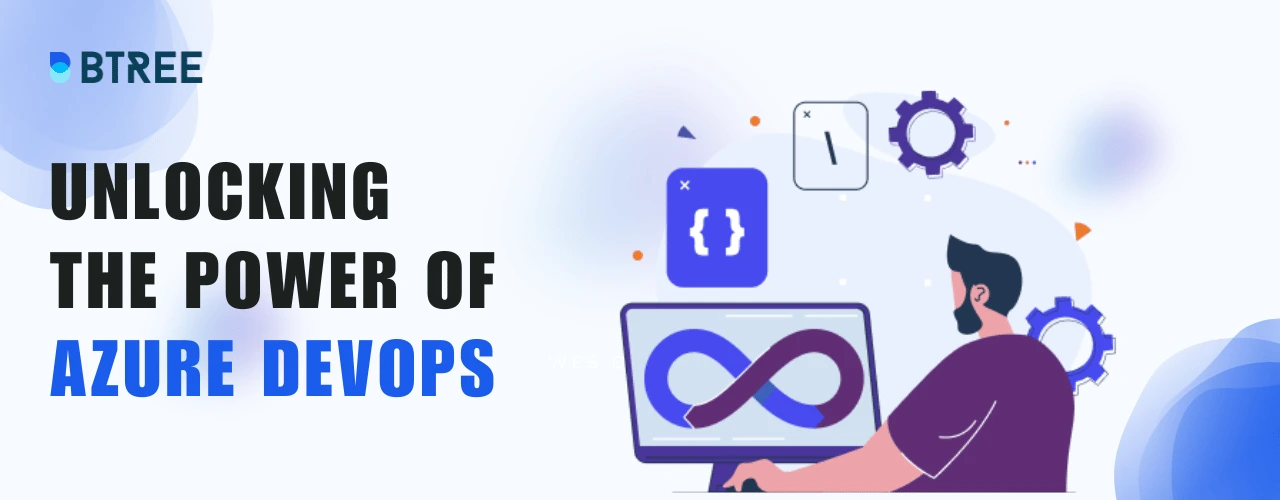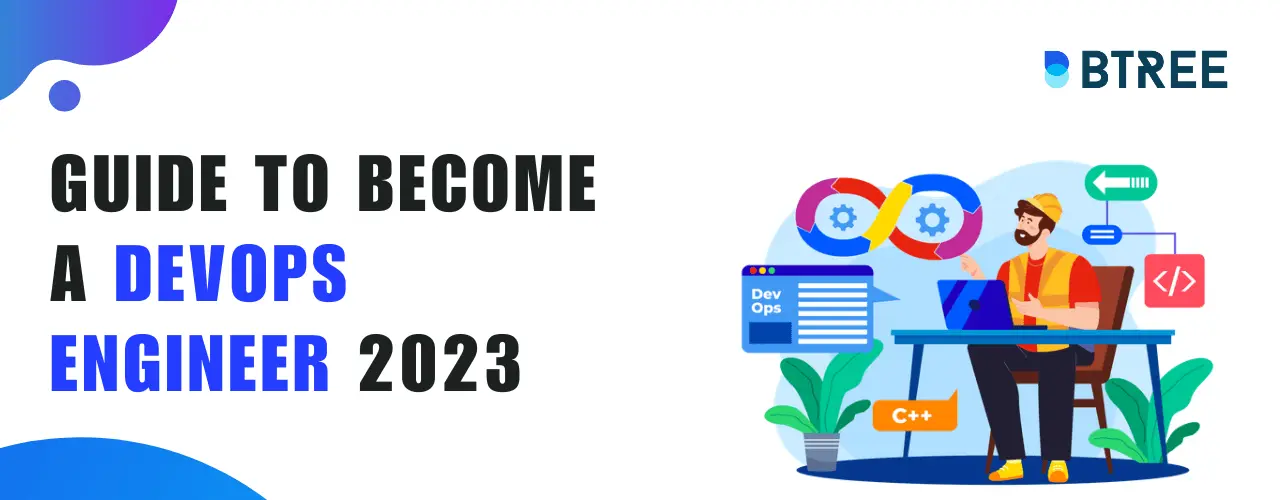
Who is a DevOps Engineer?

DevOps engineers actively integrate their software development and operations skills to enhance and streamline the software development lifecycle. They primarily aim to automate processes, promote collaboration between development and operations teams, and ensure the seamless deployment and operation of software applications.
DevOps engineers are responsible for enabling faster and more reliable software releases. By serving as a bridge between development and operations teams, these professionals significantly contribute to ensuring the efficient and dependable delivery of high-quality software products.
Begin by acquiring the necessary skills through DevOps Certification Training and gaining practical expertise to stand out yourself in the highly competitive job market.
Why is DevOps the Right Career Option in 2023?
In this age of technological advancement, choosing the right career path is crucial for long-term success. The demand for skilled DevOps professionals is skyrocketing throughout the world. DevOps has emerged as a critical practice as organizations strive to stay ahead of the competition and deliver high-quality software solutions faster. This surge in demand will create a promising career path for individuals in 2023.
Here we will point out why DevOps can be a beneficial career choice:
Embrace Continuous Learning and Growth in DevOps
One of the most attractive aspects of a career in DevOps is the endless opportunity for learning and growth. DevOps is a rapidly evolving field, with new tools, technologies, and methodologies continuously emerging. By staying updated with the latest trends and advancements, you can broaden your skill set, remain adaptable, and stay ahead of the curve. The dynamic nature of DevOps ensures that there will always be room for professional development and exploration.
Develop Your Potential with DevOps
DevOps provides a unique platform to realize your potential and significantly impact the technology sector. In order to accomplish seamless integration and continuous delivery, you can bridge the gap between development and operations by bringing teams and processes together as a DevOps professional. Becoming an expert in DevOps tools and best practices can streamline workflows, automate repetitive tasks, and promote organizational innovation.
Benefit from a Collaborative Work Environment with DevOps
Teams from various departments engage in a collaborative environment promoted by DevOps to achieve common goals. DevOps professionals work closely with developers, system administrators, quality assurance engineers, and other stakeholders to develop, test, and deploy software effectively. This collaborative work environment fosters teamwork, communication, and problem-solving skills, making it a rewarding experience for those who thrive on collaboration.
DevOps allows you to stay ahead of advancements in technology
Technology is continuously changing, and organizations must keep up to stay competitive. Working with the latest technologies, cloud platforms, and evolving techniques, professionals in DevOps are at the front lines of technical developments. By pursuing a career in DevOps, you position yourself as an evolution representative, always adapting to new technologies and contributing to corporate success in the digital age.
DevOps promotes Compete in a High-Demand Sector
The need for knowledgeable DevOps workers is growing significantly across industries. A job in DevOps places you at the forefront of a rapidly growing industry. Take advantage of numerous job opportunities, competitive salaries, and the flexibility to work in various sectors, from startups to tech giants.
Transform your career with BTree Systems' industry-leading AWS DevOps Course, and become a valuable asset for your organization!
How to Start Your Successful Career with DevOps?
When it comes to establishing a successful career in DevOps, understanding the key stages that can set you on the correct path is essential. In this section, we are going to look at the necessary steps that will undoubtedly help you begin your journey as a DevOps engineer.
To start a successful career in DevOps:
Explore the Fundamentals of DevOps
Begin by understanding the fundamentals of this field. Familiarize yourself with the core principles, methodologies, and practices of DevOps. Learn about concepts like continuous integration, continuous delivery, and infrastructure as code. Gain insights into the cultural aspects of DevOps, such as collaboration, communication, and shared responsibility.
Acquire Practical Knowledge of DevOps Tools and Technologies
To excel in DevOps, gaining practical experience with the tools and technologies used in the industry is crucial. Start with popular DevOps tools like Git, Jenkins, Docker, and Kubernetes. Set up your own development environment and practice deploying applications to different platforms. Hands-on experience will enhance your skills and demonstrate your capabilities to potential employers.
Earn DevOps Certifications
Certifications can significantly boost your credibility and employability in the DevOps field. Consider pursuing certifications such as AWS Certified DevOps Engineer or Azure DevOps Engineer. These certifications validate your knowledge and expertise in using DevOps practices on specific cloud platforms, making you a valuable asset for organizations adopting those technologies.
Establish a Solid Foundation in Software Development and IT Operations
DevOps demands a thorough understanding of both software development and IT operations. Learn about programming languages, version control systems, and software development strategies such as Agile and Scrum. A strong foundation in both development and operations will make you a well-rounded DevOps professional.
Engage with the DevOps Community
Networking and engaging with the DevOps community can provide valuable insights and opportunities. Attend meetups, conferences, and virtual events related to DevOps. Connect with professionals in the field through social media platforms like LinkedIn and Twitter. Engage in discussions, share your knowledge, and learn from experienced practitioners. Building a solid professional network can open doors to job opportunities and mentorship.
Look for internships in DevOps
Consider seeking an internship or entry-level DevOps work to gain practical, real-world experience. Look for companies that adhere to DevOps principles and provide opportunities to work with skilled individuals. It will help you improve your abilities and comprehend the challenges and dynamics of an environment that uses DevOps.
Our Lovely Student feedback
Roles and Responsibilities of a DevOps Engineer
DevOps has become essential to modern software development, transforming how teams collaborate and deliver applications. Understanding the roles and responsibilities of a DevOps engineer is ideal if you are a fresher and interested in the workings of a DevOps engineer.
Below we will list out the roles and responsibilities:
- One of the primary duties of a DevOps engineer is to promote communication and collaboration between the development and operations teams. By removing barriers and encouraging cross-functional collaboration, they serve as a bridge, promoting a culture of open and transparent communication. Effective communication ensures that everyone is aligned, goals are clear, and there is a shared understanding of the software development and deployment processes.
- They undertake the responsibility of streamlining and enhancing both development and operational processes. Their efforts are focused on enhancing operational efficiency and refining protocols through the adroit application of automation technologies and best practices. This encompasses the identification of prospects for automating processes such as build management, testing, deployment, and monitoring.
- One of the key responsibilities of a DevOps Engineer is to create and maintain continuous integration and continuous delivery (CI/CD) pipelines. This means they ensure that any changes made to the code are seamlessly integrated, built, and tested automatically. This enables faster and more reliable software releases. Achieving this objective entails the configuration of build servers, the establishment of testing frameworks, and overseeing the process of application deployments across diverse environments.
- They also have the responsibility to automate infrastructure deployment and configuration. They take advantage of Infrastructure as Code (IaC) tools like Terraform or CloudFormation to provision and manage infrastructure resources. Automating server provisioning, configuration, and scaling enables faster and more consistent deployments while reducing manual errors.
- DevOps engineers play a vital role in troubleshooting and resolving issues that arise during the development, testing, and production stages. They investigate incidents, perform root cause analysis, and collaborate with other departmental teams to identify and implement solutions. Their problem-solving skills and technical expertise are instrumental in resolving issues promptly and minimizing the impact on system availability and performance.
Master the art of seamless cloud collaboration and excel your career in Azure with our comprehensive Azure DevOps Certification Course!
Skills Required for a DevOps Engineer
If you aspire to become a DevOps engineer, acquiring the right set of skills is crucial. DevOps demands a unique blend of technical expertise and soft skills. So, let's explore the essential skills you need to develop on your way to becoming a successful DevOps engineer.
Here we pointed out the various skills required for a DevOps engineer:
Programming and scripting skills:
Strong programming skills form the backbone of a DevOps engineer's toolkit. Gain proficiency in languages including Python, Ruby, or Java to write scripts and automate tasks effectively. Familiarize yourself with shell scripting for system administration tasks. A solid foundation in programming will empower you to implement automation and develop efficient workflows.
Skills in Operating Systems and Networking:
A thorough understanding of operating systems (such as Linux and Windows) is vital for DevOps engineers. Learn system administration fundamentals, including managing users, file systems, and permissions. Acquire knowledge of networking concepts, TCP/IP protocols, and DNS. This understanding enables you to troubleshoot issues, optimize performance, and ensure seamless communication between systems.
Understanding of Cloud Platforms:
Cloud platforms like AWS, Azure, or Google Cloud, are integral to modern DevOps practices. Familiarize yourself with the core services offered by these platforms, including virtual machines, storage, networking, and containerization. Acquire hands-on experience deploying applications and infrastructure in the cloud, utilizing services like AWS Elastic Beanstalk or Azure App Service.
Proficient with Configuration Management Tools:
Configuration management tools like Ansible, Chef, or Puppet help automate and manage infrastructure. Learn how to write configuration files and define infrastructure states and deployments. Understand how to provision and manage resources consistently across different environments. Proficiency in these tools allows you to maintain infrastructure as code and achieve scalability and reliability.
Collaboration and Communication Skills:
DevOps emphasizes collaboration and effective communication. Hone your interpersonal skills, practice active listening, and cultivate the ability to work well with other teams. Strong communication skills help you communicate technical concepts and foster stakeholder collaboration. These skills contribute to efficient teamwork and successful project outcomes.
Continuous Learning Skills:
The field of DevOps is ever-evolving, demanding a continuous learning mindset. Stay updated with emerging technologies, industry trends, and best practices. Engage in learning through online courses, tutorials, and research on DevOps. Develop adaptability to embrace change and quickly adopt new tools and technologies as they develop.
Top DevOps Career Opportunities
In this segment of our blog, we will explore the various promising career opportunities in the field of DevOps. By examining these opportunities, we aim to shed light on the diverse paths you can embark upon to achieve success in this domain.
Below is the list of various job opportunities as a DevOps professional:
DevOps Engineer:
As DevOps engineers, they become the driving force behind efficient collaboration between development and operations teams. Their expertise in automation and infrastructure management enables seamless software delivery. They design and implement robust systems and ensure reliability, which drives organizational success.
Cloud Architect:
Cloud computing plays a crucial role in the world of DevOps. As cloud architects, their primary responsibility is to design and set up secure and affordable cloud infrastructures. It involves choosing the right cloud services and ensuring smooth integration. By utilizing their knowledge and skills in cloud platforms, they help organizations entirely use the benefits of cloud computing.
Site Reliability Engineer (SRE):
These engineers focus on optimizing and maintaining the reliability and performance of software systems. They work closely with development teams. It enhances application scalability, monitors system performance, and addresses incidents. Implementing automation, effective monitoring, and proactive problem-solving, SREs ensure systems operate smoothly. Further, meet service-level objectives, and provide an exceptional user experience.
DevOps Consultant:
DevOps consultants provide valuable expertise to organizations undergoing digital transformation. They identify improvement opportunities and guide teams in adopting DevOps methodologies. Their role involves developing strategies, implementing best practices, and mentoring teams. As consultants, they can work with diverse organizations. Moreover, they tackle unique challenges and drive organizational change.
Release Manager:
Release managers oversee the software release process, ensuring smooth and timely deployments. They collaborate with development, QA, and operations teams. It is to plan and coordinate release schedules, manage dependencies, and mitigate risks. Their attention to detail, strong communication, and organizational skills enable successful software releases, supporting efficient and reliable delivery.
Automation Engineer:
Automation engineers specialize in developing and maintaining automation frameworks and tools. They work with DevOps teams to identify and automate manual tasks and streamline processes. Their expertise in scripting, programming languages, and automation tools allows them to design robust automation solutions. It enables faster and error-free software delivery.
Security Engineer:
Security is a critical aspect of DevOps. Security engineers play a vital role in ensuring the integrity and confidentiality of systems and data. They work with development and operations teams to implement secure coding practices. They conduct vulnerability assessments and ensure compliance with regulatory standards. Incorporating security throughout the software development lifecycle safeguards organizations from potential threats.
DevOps Manager:
DevOps managers provide leadership and strategic direction in implementing and scaling DevOps practices. They oversee the implementation of DevOps methodologies, manage teams, and foster a culture of collaboration and continuous improvement. Their role involves aligning business goals with technical initiatives, driving innovation, and successfully adopting DevOps principles.
DevOps Engineer Salary in India in 2023
In 2023, DevOps Engineers in India can expect an average annual salary of ₹7,22,000. However, the actual salary range for this role typically falls between ₹5,25,000 and ₹14,88,000 per year. DevOps Engineers with more experience and advanced skills have the potential to earn even higher salaries, reaching up to ₹21,49,000 or more annually.
Several factors influence the salary of a DevOps Engineer in India. They are noted down in the following points:
- Experience plays a crucial role, with those possessing more years in the field commanding higher pay.
- Specialized skills in cloud computing can significantly impact salary prospects.
- Location is another important factor, as DevOps Engineers based in major cities such as Bangalore, Mumbai, and Delhi tend to earn higher salaries compared to their counterparts in smaller cities.
- The company's size also matters; larger organizations often offer more competitive salaries than smaller counterparts.
It's worth noting that India's growing demand for DevOps Engineers drives salary growth in this field, and the trend is expected to continue in the coming years. If you are considering a career in DevOps, India offers ample opportunities, and the salary potential is quite promising.
Conclusion
In conclusion, becoming a DevOps engineer offers an exciting and promising career path in the ever-evolving tech industry. As a DevOps engineer, you will be at the forefront of technological advancements, driving efficient collaboration between development and operations teams. You can kick-start a successful career in this field by acquiring the necessary skills through certification courses and gaining practical experience.
The demand for DevOps professionals is rapidly growing, opening numerous career opportunities. Not to mention, the attractive salary prospects in India make it even more enticing to pursue a career in DevOps. So, join the world of DevOps, and embark on a wonderful journey filled with growth, challenges, and endless opportunities.
Course Schedule
| Name | Date | Details |
|---|---|---|
| Azure DevOps Training |
26 Aug 2023
(Sat-Sun) Weekend Batch |
View Details |
| AWS DevOps Training |
02 Sept 2023
(Sat-Sun) Weekend Batch |
View Details |
| Microsoft Azure Training |
09 Sept 2023
(Sat-Sun) Weekend Batch |
View Details |
Looking For 100% Salary Hike?
Speak to our course Advisor Now !
